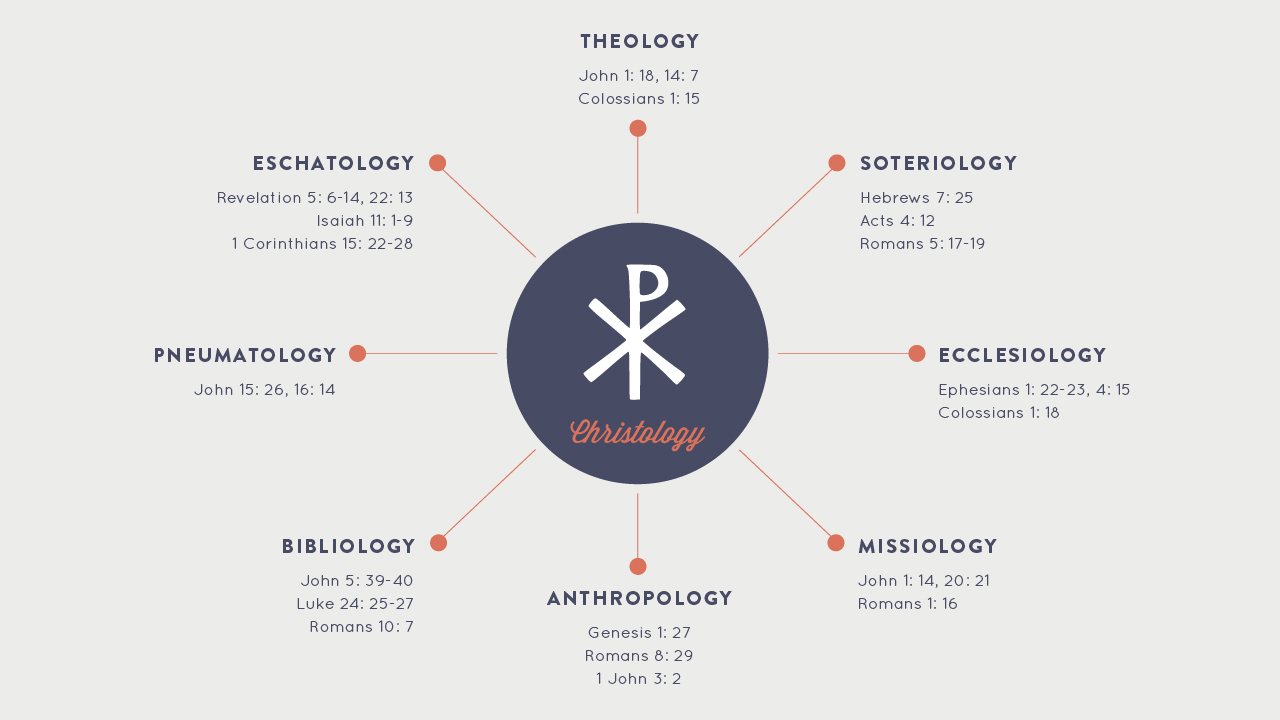By Paul Gordon • March 25, 2024
Terra Nova Network
A Family of Churches Working Together to Make More & Better Disciples of Jesus Christ
Resources
Christ at the Center of all Theology
Speak of theology to Christians and the reactions may be surprising. Some will see the topic as too heady, too divisive, or distracting from their mission. If theology is understood rightly, it becomes a centerpiece of the disciples pilgrimage to follow Jesus. When theology becomes the servant of Christology, theology becomes a tool of discipleship.
Who is this Jesus? It is the central question of Jesus to his disciples before revealing himself fully to them. In Matthew 16 Jesus recognizes the buzz about him. He engages his disciples in the general sense of the day. “Who do people say that I am?” The answers give some insight into how much people marveled at Jesus and had not a category for him. Some said he was a prophet of centuries before. Others said he was the martyred John the Baptist. The table is turned with another question. This one is pointed.
The question steals away the cool distance of measuring trends or making comment on the beliefs of others. It takes away the quiet middle ground of being hidden in the voice of the crowd. “Who do you say that I am?” Peter will give the answer that has the mark of heaven’s message. He says, “You are the Christ, the son of the living God.” Jesus declares it as an echo of heaven’s message – a mark to which all subsequent preachers worth their salt would do well to target. He calls it a bedrock, a foundation statement of the Church. The question to His disciples becomes the heart of discipleship. Christology is the core of discipleship.
When St. Paul writes to the Colossian church he includes a masterpiece of Christology. It is a passage worth spending a lifetime contemplating.
He is the image of the invisible God, the firstborn of all creation. For by him all things were created, in heaven and on earth, visible and invisible, whether thrones or dominions or rulers or authorities—all things were created through him and for him. And he is before all things, and in him all things hold together. And he is the head of the body, the church. He is the beginning, the firstborn from the dead, that in everything he might be preeminent. For in him all the fullness of God was pleased to dwell, and through him to reconcile to himself all things, whether on earth or in heaven, making peace by the blood of his cross.
Colossians 1:15-21
Jesus is presented as the power behind creation, the preserving force of all creation, and the point of all creation. He is head of the body, the one for whom everything made was meant to live. It is in this that he becomes preeminent, first- in the Church, over creation, in the resurrection, and in representing the Eternal, Invisible God. To say it another way, all things, especially all theology, is consequential to Christology.
We are taught systematic theology in the form of organized biblical and theological categories. A glance at the systematic theology books I used in seminary provides a list of them in the table of contents. I labored to learn each. It is a good task to categorize and aggregate all the theology categories, but I would say now that all of these theologies are consequential to Christology. Christology is moved from one category in a theological list to a nucleus from which all theologies find their center.
Consider the list as consequential to Christology. Theology proper becomes of the study of God through knowing Christ. Paul will say Jesus is the icon of God. See the image, “open” the icon, and find all that is within. To know Jesus, to enter in to his life, is to find God.
Pneumatology becomes the study of the Spirit who makes Christ known. The Spirit shines a spotlight on Jesus. He descends on him at Jesus’ baptism. He takes gifts and presents them to body to mature us in Jesus. He secures our place in Jesus. He takes what is Jesus and makes it know to us for his glory. The Spirit empowered work of ministry always makes much of Jesus.
Bibliology is the study of the testimony of Jesus. Jesus made it clear the bible was about him and a means to reach him. His correction to the Pharisees, men so Scripture-focused that they counted letters, was to find life not in the bible alone, but through the bible. He describes the bible as a book that “testifies of me.” He will make it known to disoriented disciples after the crucifixion who are heavy with the cross and confused over the whispers of the resurrection. Jesus will tell the two on the Emmaus Road that all the works of Moses and the Prophets speak of Him (Luke 25:27).
The list goes on.
Eschatology is the study of the end, and the end is the revelation of Jesus.
Anthropology is the study of Jesus, what the Image of God rightly is.
Harmartiology becomes a study of the absence of Christ-likeness.
Soteriology the study of how Jesus saves.
Ecclesiology the study of Jesus’ people, his body.
Missiology is study of the cause of Jesus.
Sanctification the study of the process of becoming more like Jesus.
When theology becomes the revelation of Jesus, theology has the power of discipleship, which is the process of knowing, loving and serving Jesus as we orient our lives to make him the center, preeminent in all things.
